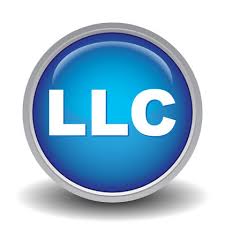Putting rental properties into LLCs versus corporations.
 We have also discussed why put rental properties in LLCs and some of the issues of owning rental properties in LLCs. Before we get started, I want to remind you that at Hoffman Realty, we are not attorneys. We are property managers and real estate agents. Please make sure you use this helpful blog as a way to access talking points when you are discussing your various options with your legal counsel.
We have also discussed why put rental properties in LLCs and some of the issues of owning rental properties in LLCs. Before we get started, I want to remind you that at Hoffman Realty, we are not attorneys. We are property managers and real estate agents. Please make sure you use this helpful blog as a way to access talking points when you are discussing your various options with your legal counsel.
There are many different vehicles people use for their rental properties.
Lately, LLCs have been very popular. While there are lots of things you can do; from corporations to limited partnerships to limited liability partnerships, many property owners find themselves attracted to the LLC. Some people will use blind trusts as well, but I am not sure those work very well. LLCs are popular for a number of reasons, and it’s a good idea for you to consider how they might work out better for you and your property, especially compared to a corporation.
LLCs require less paperwork
The first reason for the LLC’s popularity is that an LLC requires a lot less paperwork than a corporation. This is important if you are a property owner because it will be an ongoing issue for you. You have to stay up to date with your paperwork year in and year out and there is a lot more of it when you have your property listed as a corporation. If you let the paperwork slip, someone could challenge the legality of your entity, known as “piercing the veil”, and that can leave your personal assets exposed.
Favorable tax treatment
The second thing that explains why people will choose an LLC over a corporation is that the tax treatment is more favorable. For tax purposes, holding your rental rental property in a corporation will be a lot more complicated than treating it as a sole proprietorship. When you have your rental property in an LLC, you can treat it as a sole proprietorship for tax purposes as an LLC can be organized as a “disregarded entity” for tax Being a Landlord in Tampa Putting Rental Properties in LLCs versus Corporationspurposes. The disregarded entity designation really simplifies your taxes and it can be very important if you have losses to report on your rental property. Those losses may be able to carry through to your personal taxes, offsetting any income or gains that might cause you to face a larger tax bill.
Deciding which entity to choose to hold you rental property is a complex decision with may factors to weigh. If you would like to discuss it further, or you have any other questions about property management, please contact us at Hoffman Realty and we’d be glad to help you.
